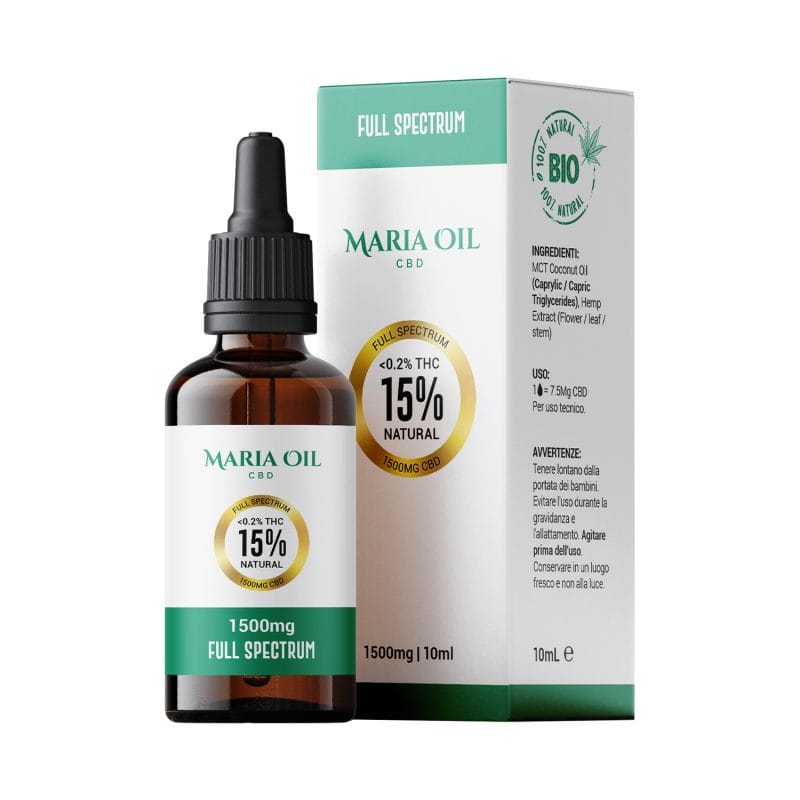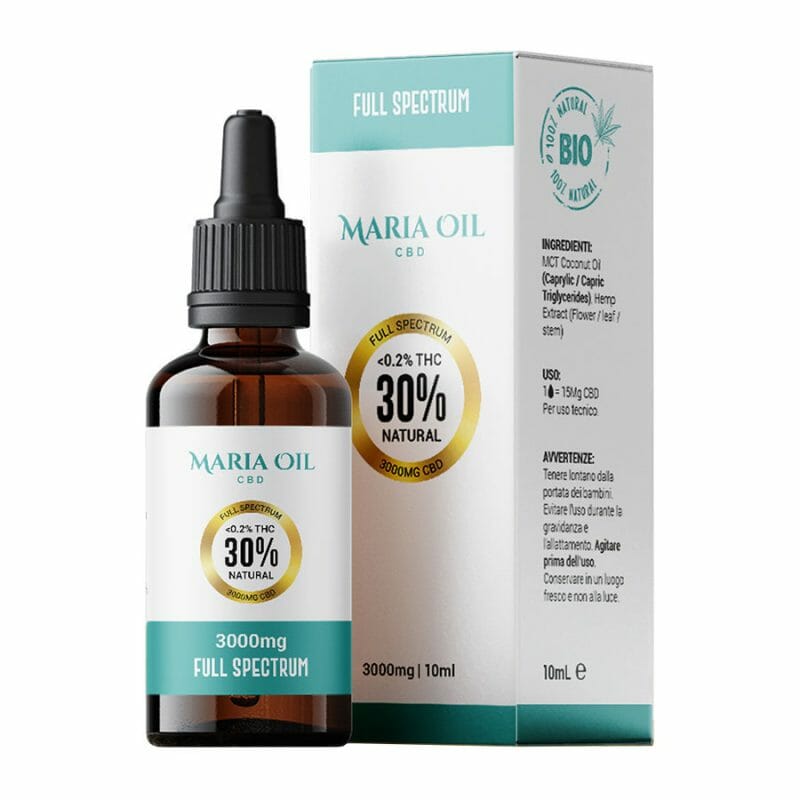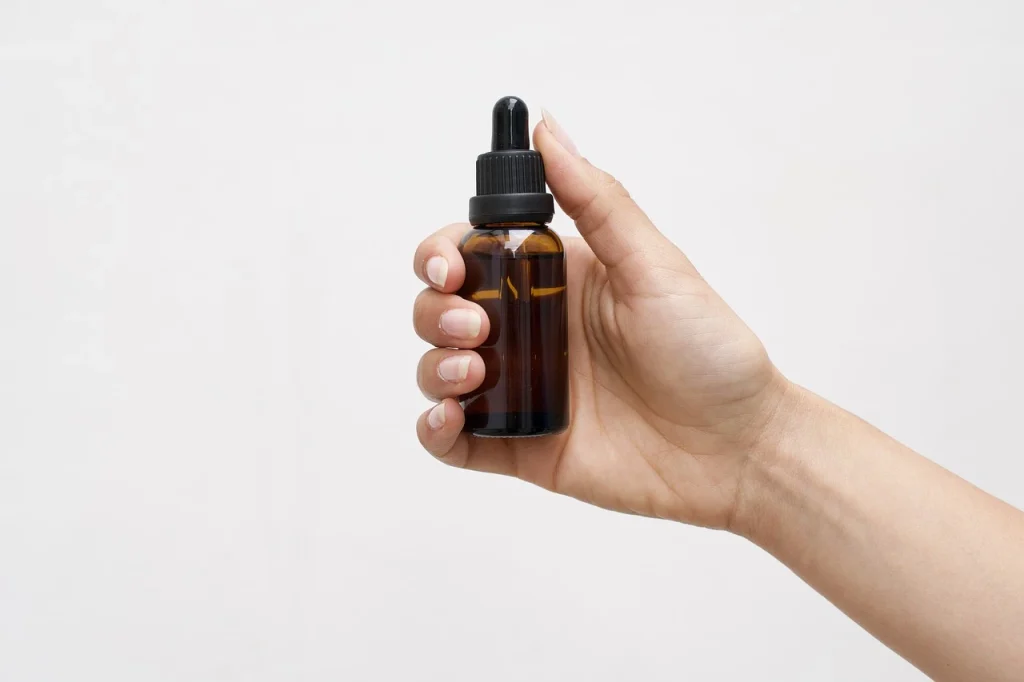Among the many components of cannabis, Cannabicromene (CBC) has recently attracted the attention of scholars for its still largely unexplored therapeutic properties.
That’s right, besides the better known CBD (cannabidiol) and THC (tetrahydrocannabinol), there are other cannabinoids, such as CBD, that offer a wide range of potential benefits for our body.
Cannabicromene is known for its powerful pain-relieving and anti-inflammatory properties, which make it a valuable ally for those suffering from chronic pain or inflammatory diseases. It also has been studied for its benefits on intestinal diseases, as it can help reduce inflammation and improve gastrointestinal well-being, supporting gut health in a natural way.
In addition to this, CBC offers relaxation, stress relief and may help improve anxiety disorders, due to its ability to modulate the endocannabinoid system and other receptors related to mood regulation.
Chemically, CBC is obtained through a natural process: the cannabis plant produces a precursor, cannabicromenic acid (CBCA), which, through the action of specific natural enzymes and prolonged exposure to heat or ultraviolet light, is transformed into cannabicromene. This decarboxylation process, also common for other cannabinoids, activates the properties of CBCA, making it available for absorption by the body.
-
Product on sale
 CBD Oil 15% (1500mg) Full SpectrumPrice range: £31.20 through £51.20From 1,71 €/gr
CBD Oil 15% (1500mg) Full SpectrumPrice range: £31.20 through £51.20From 1,71 €/gr -
Product on sale
 CBD Oil 25% (2500mg) Full SpectrumPrice range: £47.20 through £67.20From 2,24 €/gr
CBD Oil 25% (2500mg) Full SpectrumPrice range: £47.20 through £67.20From 2,24 €/gr -
Product on sale
 CBD Oil 30% (3000mg) Full SpectrumPrice range: £55.20 through £75.20From 2,51 €/gr
CBD Oil 30% (3000mg) Full SpectrumPrice range: £55.20 through £75.20From 2,51 €/gr
THC, CBD and CBC: what’s the difference?
THC, CBD and CBC share the same molecular structure but a different chemical arrangement, which determines their different properties and benefits.
Let’s look in detail at the differences between these three cannabinoids:
- THC: This is the main cannabinoid responsible for the psychoactive effects of cannabis. THC alters perception, mood and can induce euphoria.
It has pain-relieving, anti-nausea and appetite-stimulating properties, and is often used in medicine to treat chronic pain, sleep disorders and loss of appetite associated with diseases such as cancer.
As far as side effects are concerned, THC can cause anxiety, paranoia and impaired memory and coordination. - CBD: Unlike THC, it does not produce psychoactive effects or mental alterations.
It has anti-inflammatory, anti-epileptic, anxiolytic and neuroprotective properties. It is used to treat anxiety, inflammation, chronic pain, epilepsy and other conditions. - CBC: Like CBD, CBC has no psychoactive effects and does not alter the mental state.
It possesses anti-inflammatory, antibacterial and analgesic properties and may contribute to neurogenesis (formation of new brain cells).It works well in combination with other cannabinoids due to its entourage effect, enhancing the overall efficacy of cannabis.

The benefits of CBC
Like the other cannabinoids previously mentioned, CBC interacts with the endocannabinoid system (ECS), responsible for pain regulation, inflammatory and immune response, stress, mood, appetite, and sleep. Not only that, it also has an important neuroprotective and digestive function.
The endocannabinoid system has two receptors: CB1 and CB2. CBC binds to the latter, prolonging its activity and, consequently, promoting its aforementioned functions.
Let’s look in detail at all the benefits that CBC, when interacting with our endocannabinoid system, brings to our body:
- Pain-relieving properties: It helps reduce pain by acting in synergy with other cannabinoids such as CBD and THC to enhance the overall analgesic effect, known as the entourage effect.
This characteristic makes CBC particularly useful in the treatment of neuropathic, chronic and inflammatory pain, offering a natural alternative for those suffering from persistent pain conditions such as arthritis, fibromyalgia or other conditions that impair quality of life. - Anti-inflammatory properties: It possesses potent anti-inflammatory properties, which work by reducing inflammation in a natural and targeted manner, without the side effects often associated with traditional anti-inflammatories, such as gastrointestinal complaints or kidney damage.
Thanks to these characteristics, CBC is particularly useful for the treatment of chronic inflammatory conditions, such as arthritis, inflammatory bowel disease and other conditions involving persistent pain and swelling. - Neuroregenerative properties: It can help stimulate the growth of new brain cells, a process called neurogenesis. This is particularly important for supporting long-term brain health and for the potential treatment of neurodegenerative conditions.
- Anti-acne properties: Due to its powerful anti-inflammatory properties and ability to regulate sebum production, CBC shows particular promise in the treatment of acne and other inflammatory skin conditions such as eczema and dermatitis.
This cannabinoid not only helps soothe irritated skin, but also helps prevent the formation of new blemishes, improving the appearance and overall health of the skin. - Antidepressant properties: Recent studies suggest that CBC may exert antidepressant effects by positively influencing mood, due to its ability to interact with receptors of the endocannabinoid system and other neurotransmitters involved in emotion regulation, such as serotonin and dopamine.
This interaction can help reduce symptoms of anxiety and depression, offering natural support for mental well-being without the side effects associated with some traditional drugs. - Antibacterial and antifungal properties: CBC has been shown to have strong antibacterial properties against a wide range of bacteria, including some antibiotic-resistant strains. In addition, it has antifungal effects, making it useful in fighting infections.
- Anti-cancer properties: CBC may have anticarcinogenic effects, with preliminary studies indicating its ability to inhibit the growth of certain cancer cells, such as breast cancer cells and other types of tumours. This cannabinoid appears to interfere with cell proliferation and promote apoptosis, the process of programmed death of diseased cells.
However, it is important to emphasise that research is still in its early stages, and further clinical studies are needed to confirm these effects and fully understand its mechanism of action and potential therapeutic applications in oncology. - Gastoprotective properties: CBC may help reduce inflammation in the gut, which is often associated with conditions such as irritable bowel syndrome (IBS) and inflammatory bowel disease (IBD) such as Crohn’s disease and ulcerative colitis. It also has anti-nausea properties and supports intestinal motility, which is useful for people who suffer from digestive disorders or experience chronic nausea.
In summary, CBC stands out for its unique and complementary properties compared to other cannabinoids, offering benefits that go beyond pain relief and inflammation. Due to its anti-inflammatory, pain relieving, antidepressant and gastroprotective properties, CBC is a valuable natural support for the body’s overall well-being, making it a precious ally in the treatment of many health conditions.
How to use CBC
Come si può assumere il CBC?
How can I take CBC?
CBC (cannabicromene) can be used in different ways, according to personal needs or preferences. Here are some of the most common methods:
- CBC oils: Oils are among the most popular methods of taking CBC due to their versatility and ease of use. They can be administered directly under the tongue for rapid absorption and almost immediate action, or added to food and drink for more discreet administration.
CBC oils are often formulated with other cannabinoids, such as CBD, to exploit the entourage effect, which amplifies the therapeutic benefits. In addition, many oils also contain natural terpenes that contribute to the overall effectiveness of the product, offering additional benefits such as aromatherapy.
-
Product on sale
 CBD Oil 15% (1500mg) Full SpectrumPrice range: £31.20 through £51.20From 1,71 €/gr
CBD Oil 15% (1500mg) Full SpectrumPrice range: £31.20 through £51.20From 1,71 €/gr -
Product on sale
 CBD Oil 25% (2500mg) Full SpectrumPrice range: £47.20 through £67.20From 2,24 €/gr
CBD Oil 25% (2500mg) Full SpectrumPrice range: £47.20 through £67.20From 2,24 €/gr -
Product on sale
 CBD Oil 30% (3000mg) Full SpectrumPrice range: £55.20 through £75.20From 2,51 €/gr
CBD Oil 30% (3000mg) Full SpectrumPrice range: £55.20 through £75.20From 2,51 €/gr
- Capsules and Softgels: This form of intake allows for a precise and standardised dosage of CBC, making it ideal for those seeking a discreet, easy mode of consumption without the characteristic taste of oil.
The capsules and softgels dissolve in the stomach, slowly releasing the CBC into the bloodstream, allowing for a prolonged and constant effect. They are perfect for those who want to manage their dosage with precision and convenience, easily incorporating them into their daily routine. - Topicals and Creams: Applied directly to the skin, CBC topicals such as creams, balms and lotions are particularly effective for treating localised pain, inflammation, and promoting healthy skin.
Due to CBC’s anti-inflammatory properties, these products can be used to alleviate conditions such as arthritis, muscle and skin inflammation. They are also ideal for those suffering from dermatological problems such as eczema or acne, offering targeted treatment without entering the bloodstream. - Tinctures: Similar to oils, CBC tinctures are usually administered under the tongue for quick intake, or can be mixed with food and drink.
Tinctures often include herbal extracts and other natural ingredients that can enhance the overall effectiveness. They are available in different concentrations, allowing users to easily adjust the dosage according to their needs, and are appreciated for their versatility and speed of action. - Edibles: CBC can be infused into a variety of edibles, including candies, chewing gum, biscuits and other snacks. This mode of consumption offers a tasty, convenient and discreet way of integrating CBC into the daily routine.
Edibles pass through the digestive tract, leading to a slower and more prolonged release of CBC in the body, making them ideal for those who want a long-lasting effect. They are particularly appreciated by those who prefer to avoid the taste of oils and tinctures. - Vapourisation: Although less common than CBD or THC, CBC can be vaporised using special devices that allow for rapid assimilation and increased bioavailability.
This method allows cannabinoids to quickly enter the bloodstream through the lungs, providing an almost immediate effect. Vapourisation is considered a safer mode of consumption than smoking, as it does not involve combustion and therefore reduces exposure to harmful substances.
Also, CBC is easily found in most full or broad spectrum CBD oils, produced by many companies such as Maria CBD Oil.
Full Spectrum CBD oils contain all the cannabinoids naturally present in the cannabis plant, including CBD, CBC, CBG, and traces of THC (within legal limits). This type of oil exploits the entourage effect, in which the different cannabinoids work together to enhance the overall benefits.
Broad Spectrum oils contain various cannabinoids such as CBD and CBC, but are free of THC, still offering an entourage effect without the psychoactive effects of THC.
Finally, CBD Isolate oils contain only pure CBD and do not include other cannabinoids such as CBC.
If you want an oil that contains CBC, it is advisable to choose Full Spectrum or Broad Spectrum products, reading the label or the manufacturer’s specifications carefully to find out the full profile of the cannabinoids present.
Is CBC legal?
Yes, CBC (cannabicromene) is legal in most countries, including the U.K. and most of Europe, as it is not considered a psychoactive substance and does not cause intoxicating effects like THC.
CBC is a non-psychoactive cannabinoid, and is therefore not regulated like THC, which has psychoactive effects and is strictly controlled by cannabis laws.
However, the legality of CBC may vary slightly from country to country, so it is always advisable to check local regulations to ensure that products containing CBC are permitted in your jurisdiction. In the US, for example, CBC is legal if derived from industrial hemp (which must contain less than 0.3% THC), in line with the 2018 Farm Bill.
The future of CBC
The future of CBC (cannabicromene) and its scientific research looks promising, especially in light of the growing interest in the therapeutic benefits of non-psychoactive cannabinoids.
Although CBC is not yet as well studied as CBD or THC, early research suggests that it could play an important role in several areas of health due to its anti-inflammatory, analgesic, antibacterial and pro-intestinal properties.
In particular, research is expected to focus on these specific aspects of the cannabinoid:
- Development of new therapeutic treatments: Due to its anti-inflammatory effects and potential benefits for intestinal health, CBC could be investigated for the development of natural therapies for gastrointestinal disorders, chronic pain, and inflammatory diseases.
- Synergy with other cannabinoids: the ‘entourage phenomenon’, i.e. how CBC can work synergistically with other cannabinoids such as CBD and THC to enhance the overall therapeutic effects, is increasingly being investigated, expanding the potential of full spectrum products.
- Expansion into wellness and cosmetics: With the growing interest in natural and sustainable ingredients, CBC could also find a place in cosmetics for its anti-inflammatory and regenerative properties, offering innovative solutions for skin problems such as acne or inflammation.
- Advanced clinical research and regulation: The next step will be to conduct high-quality clinical studies to confirm the benefits of CBC on a large scale, which could influence global regulations and open the door to new therapeutic applications recognised by traditional medicine.
Conclusion
In conclusion, Cannabicromene (CBC) represents one of the most promising components of cannabis, with a profile of effects and benefits that go well beyond its anti-inflammatory and pain-relieving properties.
Its methods of use, ranging from oils to capsules, topicals to vaporisers, make CBC a versatile option for those seeking natural alternatives for physical and mental wellbeing.
Although research is still at an early stage, the future of CBC looks bright, with growing scientific interest promising to unveil further therapeutic potential of this cannabinoid.
Choosing quality products and relying on conscious use of CBC could be an important step forward in the management of multiple health conditions.
Visit our Maria CBD Oil store to discover all available combinations and concentrations of CBD oils, designed to meet your every wellness need!
 Contact us
Contact us 






